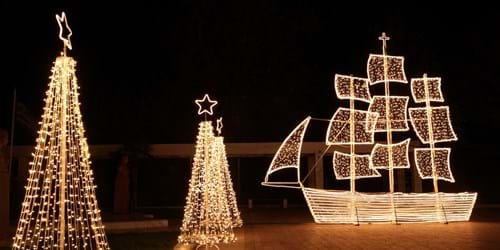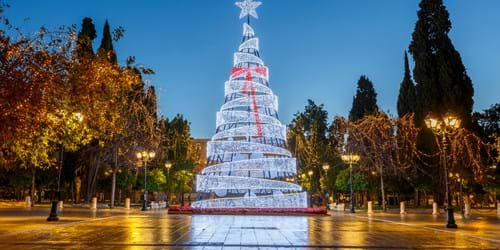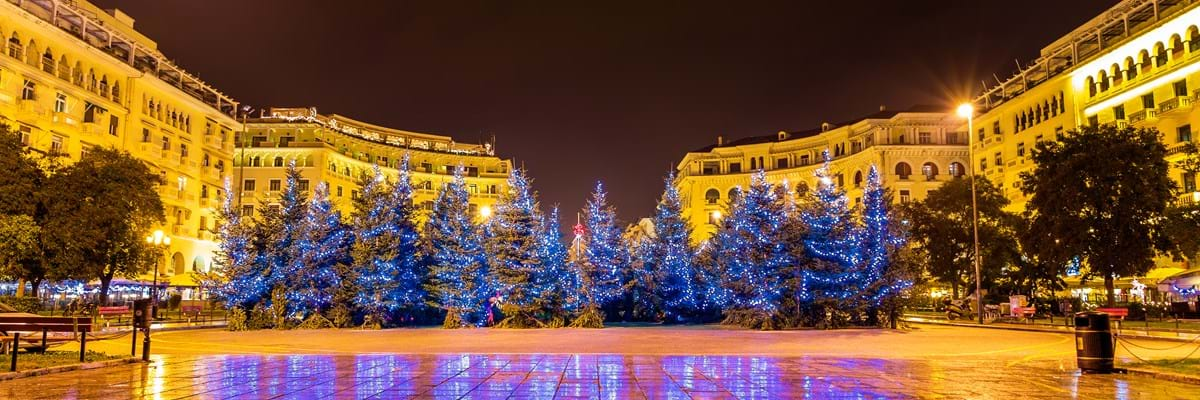Kala Christougenna!
That’s the greeting for Merry Christmas in Greece, where you’ll find that the popular carol I Saw Three Ships barely covers one of the country’s most popular traditions.
Windows in homes and displays in the streets often feature festive light arrangements in the shape of ships, especially sailing boats, symbolising the nation’s seafaring heritage.

The ritual began as a way of giving thanks for the safe return of vessels from Mediterranean voyages, and honouring the patron saint of sailors, St Nicholas, who is often depicted with his robes and beard splattered with saltwater from the waves.
The tradition of ship-shaped lighting has been preserved despite the increasing popularity of Christmas trees, which began to gain wide acceptance in the mid-20th century and nowadays are also familiar sights in town and village centres.
Christmas in Athens
The capital, Athens, leads the way each year by claiming the largest Christmas tree in Europe, a shimmering display in Syntagma Square surrounded by the permanent trees festooned in brightly-coloured lighting.

The largest cities host Christmas markets selling traditional food and craft gifts, and several ice skating rinks, while in the Athens port of Piraeus a big children’s playground is created in Korai Square.
Christmas traditions
Rather than St Nicholas, Santa Claus or Father Christmas, the bringer of presents for Greek children – who can expect fewer parcels than in some western countries – is St Basil, who does not arrive with his gifts until his feast day, January 1.
As for anyone coming down the chimney, that is thoroughly discouraged in Greece – fires are lit and ropes woven across doorways to keep out the cheeky goblins known as kallikantzaroi, who are said to leave their underground tunnels at Christmas time to try to disrupt preparations and spoil the food.
Families will also ward off the would-be intruders by wrapping a small, wooden cross in basil, and suspending it over a wooden water bowl, then sprinkling the home with symbolic holy water during the season.
Carol-singing, or kalanda, is as popular in Greece as anywhere, but tends to take place only on the mornings of December 24 and January 5 when children tour their neighbourhoods, sometimes carrying model ships and with a simple drum or triangle accompaniment, to be rewarded for their efforts with sweets or money.
The Christmas season ends with the feast of Epiphany on January 6, when the Greek Orthodox Church holds services to mark The Blessing of the Waters. A priest will throw a blessed cross into the sea, a river or a lake, and brave youngsters will dive in to retrieve it from the chilly waters.




